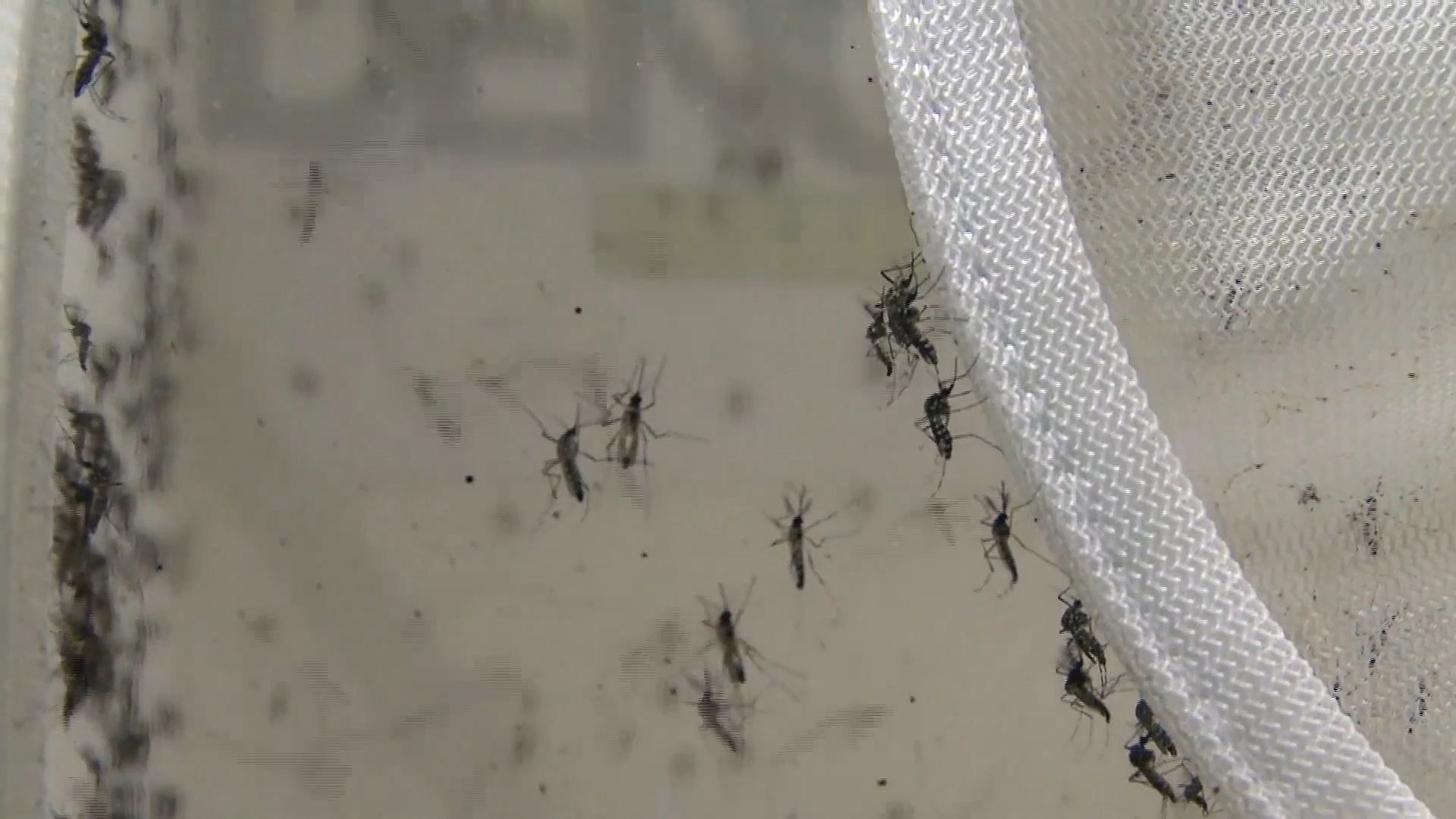Hear about testing the effectiveness of lab-grown mosquitoes carrying Zika-blocking bacterium to combat the virus spread in Brazil, a part of “Eliminate Dengue” program

Hear about testing the effectiveness of lab-grown mosquitoes carrying Zika-blocking bacterium to combat the virus spread in Brazil, a part of “Eliminate Dengue” program
Testing the effectiveness of deploying mosquitoes with a Zika-blocking bacterium to combat the spread of the virus in Brazil, 2016.
© CCTV America (A Britannica Publishing Partner)
Transcript
LUCRECIA FRANCO: These are Aedes aegypti mosquitoes, the species that transmits dengue, yellow fever, chikungunya, and Zika, the virus linked to a certain number of babies born with small heads, a condition known as microcephaly. But these mosquitoes are different. They carry a bacteria called Wolbachia pipientis, which inhibits their ability to spread the viruses.
Scientists release these good mosquitoes in Brazil as part of a successful international program called "Eliminate Dengue." Dr. Luciano Moreira, from Brazil's Oswaldo Cruz Foundation, introduced the method to Brazil. He's the senior author of a study that shows that the bacteria also makes the mosquitoes incapable of transmitting Zika.
LUCIANO MOREIRA: [SPEAKING PORTUGUESE]
TRANSLATOR: We had access to mosquitoes with Zika. If Wolbachia could block the Zika virus and the results were positive, mosquitoes with Wolbachia do block the Zika virus.
FRANCO: Here in Niteroi, to the north of Rio, a trial was carried out in 2015. Thousands of mosquitoes with Wolbachia were released. And now 80% of the mosquito population is harmless.
RESIDENT: [SPEAKING PORTUGUESE]
TRANSLATOR: People are enthusiastic, because they are realizing there are means to eliminate Dengue and Zika.
FRANCO: The trials will now expand to include larger areas in Brazil and Colombia, after an $18-million increase in funding by government agencies, like the US National Institutes of Health, and a team of donors.
MOREIRA: [SPEAKING PORTUGUESE]
TRANSLATOR: We are planning to test it in areas with 2.5 million people. It's a big expansion. Then we'll study if we will be able to reduce or stop virus transmissions.
FRANCO: The plan is to release a swarm of these good mosquitoes early next year. Scientists expect them to help win a global public-health battle, mainly against the Zika virus, which, according to the WHO, has now spread to 73 countries. Lucrecia Franco, CCTV, Rio de Janeiro.
Scientists release these good mosquitoes in Brazil as part of a successful international program called "Eliminate Dengue." Dr. Luciano Moreira, from Brazil's Oswaldo Cruz Foundation, introduced the method to Brazil. He's the senior author of a study that shows that the bacteria also makes the mosquitoes incapable of transmitting Zika.
LUCIANO MOREIRA: [SPEAKING PORTUGUESE]
TRANSLATOR: We had access to mosquitoes with Zika. If Wolbachia could block the Zika virus and the results were positive, mosquitoes with Wolbachia do block the Zika virus.
FRANCO: Here in Niteroi, to the north of Rio, a trial was carried out in 2015. Thousands of mosquitoes with Wolbachia were released. And now 80% of the mosquito population is harmless.
RESIDENT: [SPEAKING PORTUGUESE]
TRANSLATOR: People are enthusiastic, because they are realizing there are means to eliminate Dengue and Zika.
FRANCO: The trials will now expand to include larger areas in Brazil and Colombia, after an $18-million increase in funding by government agencies, like the US National Institutes of Health, and a team of donors.
MOREIRA: [SPEAKING PORTUGUESE]
TRANSLATOR: We are planning to test it in areas with 2.5 million people. It's a big expansion. Then we'll study if we will be able to reduce or stop virus transmissions.
FRANCO: The plan is to release a swarm of these good mosquitoes early next year. Scientists expect them to help win a global public-health battle, mainly against the Zika virus, which, according to the WHO, has now spread to 73 countries. Lucrecia Franco, CCTV, Rio de Janeiro.









